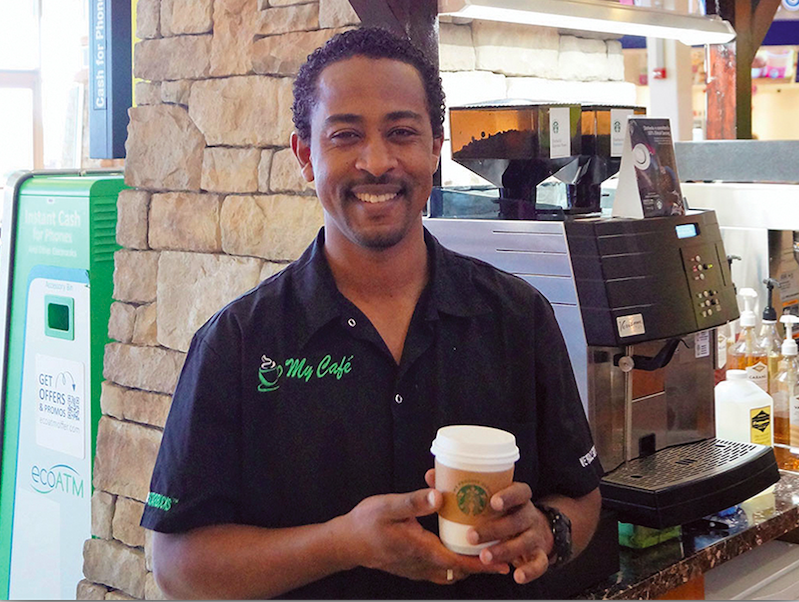Immigrants and Refugee Community Stoke Aurora’s Economic Fire
Global entrepreneurs flock to this sprawling community east of Denver
Gigi Sukin //October 11, 2017//


Immigrants and Refugee Community Stoke Aurora’s Economic Fire
Global entrepreneurs flock to this sprawling community east of Denver
Gigi Sukin //October 11, 2017//

Last year, Yonas Solomon's company, headquartered in an unadorned Aurora office and warehouse, saw sales soar above $1 million. Originally from Eretria, he spent more than 10 years working in the airplane parts business in Dubai before moving to Colorado. Once in the U.S., he launched Avtech International, buying parts for aircraft in the U.S. and shipping them to airlines, governments and others throughout North and East Africa beginning in 2012.
Solomon struggled early on to find funding and grow his company, as institutional bankers were skeptical of his faraway project in such a limited market.
“If you go into a major financial institution as an immigrant business owner, you often keep getting turned down,” says Frances Padilla, district director of the U.S. Small Business Administration’s Colorado district office, one of 14 throughout the state. “Immigrant business owners have added stress including language barriers and settling into a new life.”
Solomon persevered. In 2015, he approached the SBA and secured a loan from Commerce Bank, allowing him to expand his business. This year, Solomon was named the SBA’s Small Business Exporter of the Year for his business-building success.
And his story is no exception.
In Aurora, the sprawling city east of Denver, immigrants and refugees from around the globe are building businesses and contributing to the community.
The state’s demography office reports 20 percent of Aurora residents are foreign-born, with more than 139 languages spoken in the area’s public schools.
“Aurora is the most diverse city in the whole state,” says Ricardo Gambetta-Alvarado, manager of the Office of International and Immigrant Affairs for the City of Aurora. “Over the last couple years, the city has been trying to be more proactive and engage the international community.”
Gambetta-Alvarado’s office opened two years ago with the intention of untangling the web of city departments and community resources available to immigrant populations. Between government agencies, nonprofits, lending operations, religious entities and beyond, it takes a village to provide ample resources and support, let alone navigate the tools available.
“The trouble is making sure people are aware of where to go,” says Sarah Hughes, program analyst at the U.S. SBA. But once they do, they can thrive, she adds.
In the U.S., about 40 percent of new businesses are started by immigrants and women, according to Gambetta-Alvarado’s office. “The social part of the master plan is to make the city an international destination for business,” he says.
To illuminate the global hub tucked beside the Mile High City, the Colorado Enterprise Fund and Community Enterprise Development Services (CEDS) – two nonprofit organizations that provide loans to small businesses – hosted the ninth annual National Small Business Week SBA – Small Business Tour, specifically selecting refugee- and immigrant-owned establishments to spotlight.
The excursion took attendees from My Café, owned by Suleyman Abbagero and Eyerusalem Halle from Ethiopia, to the Denver Halal Mini Market, owned by Somali-born Said Omar, among several other stops throughout the day.
“CEDS was started to help refugees achieve the American dream,” says Alyson Anderson, loan manager for the organization. To date, she and her team have executed more than 120 loans, totaling about $1.7 million.
Also this May, Aurora further solidified its commitment to increase international ties, opening a consulate for El Salvador. Gambetta-Alvarado says the office will advance Aurora’s position as a place for international business.
Abbagero, who has one full-time employee and two part-timers, says opening his coffee shop gave him freedom he didn’t have before. Additional job creation is occurring throughout Aurora’s foreign-born community, as others like Abbagero are “hiring from within,” according to Anderson. “Like anywhere in the world, the best way to get hired is to know somebody and build a network.”
All this is set amid a backdrop of fear among immigrant populations, as threats of reform, spending cuts and public protests have increased and intensified in recent months. Some believe reducing foreign labor would free up employment for low-skilled American workers. But Nicole Melaku, executive director of the Colorado Immigration Right Coalition, says low-skilled American workers aren’t showing up for jobs on southern Colorado farms, nor lining up for jobs in construction or the service industry to meet demands, given the low unemployment numbers in the state.
Immigrants who have difficulty finding work often turn to entrepreneurship as an alternative path.
The Kauffman Foundation recently reported that immigrants are more than twice as likely as native-born Americans to launch new businesses. According to the nonprofit Immigration Policy Center, about one in 10 business owners in Colorado is foreign born. As of 2010, new immigrant business owners netted $1.2 billion in income, accounting for 7.3 percent of the new business income in the state.
“Most immigrants I talk to were entrepreneurial in their home countries,” Padilla says. “Not necessarily by a traditional definition. They buy or sell or grow or create, sometimes out of necessity. They learn whatever skills they need — and that leads them to become small business owners.”
Top Three Countries of Origin for Immigrant Populations in Aurora:
1. Mexico
2. Ethiopia
3. El Salvador
– Office of International and Immigrant Affairs for the City of Aurora

























